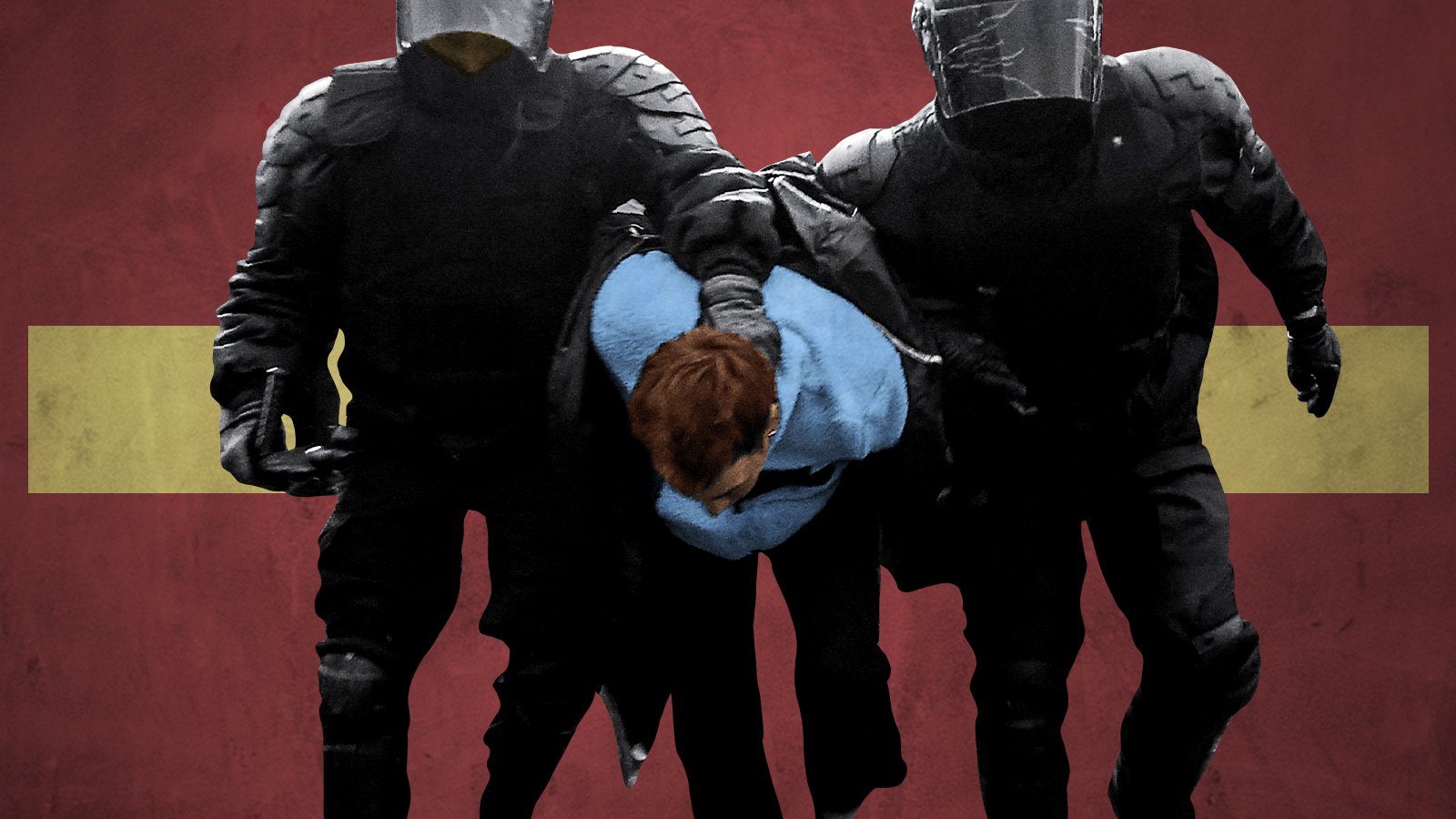Ordinary Russians pay a high price for protesting Putin


A free daily email with the biggest news stories of the day – and the best features from TheWeek.com
You are now subscribed
Your newsletter sign-up was successful
One of the more astonishing developments of the last week has been the sight of ordinary Russians taking to the streets to decry Vladimir Putin's invasion of Ukraine. In a country where dissent can quickly get you imprisoned or even poisoned, it takes extraordinary moral courage to take a stand: As many as 5,000 protesters have already been arrested.
But does the world have the right to expect such courage from Russians?
Michael McFaul, who served as the U.S. ambassador to Russia during the Obama administration, thinks so. "There are no more 'innocent' 'neutral' Russians anymore. Everyone has to make a choice — support or oppose this war," he wrote Wednesday morning on Twitter. "The only way to end this war is if 100,000s, not thousands, protest against this senseless war. Putin can't arrest you all!"
The Week
Escape your echo chamber. Get the facts behind the news, plus analysis from multiple perspectives.

Sign up for The Week's Free Newsletters
From our morning news briefing to a weekly Good News Newsletter, get the best of The Week delivered directly to your inbox.
From our morning news briefing to a weekly Good News Newsletter, get the best of The Week delivered directly to your inbox.
That's glib, morally preening nonsense.
In the United States, the slogan "silence equals complicity" has become something of a cliche when brandished by lefty activists. And to some extent it might even be true, but only because we live in a democracy where, supposedly, nearly all citizens have a say in the country's governance. The bar for moral courage isn't quite on the ground here — lots of people were badly injured or snatched up off the streets during the Black Lives Matter protests in 2020, for example — but there is still a lot of room for dissent.
It's a mistake to transfer that either/or mindset to an autocracy like Russia. Even the country's oligarchs have sometimes paid for getting on the wrong side of the government. For many people there, it is not the case that silence equals complicity — it's survival. And given the sudden devastation of Russia's economy following the invasion, that survival has just gotten a lot more difficult. Vladimir Putin is guilty of invading Ukraine. Pronouncing a shared collective guilt upon millions of people who might just be trying to get by while keeping their heads down is unfair and unjust.
We should welcome and celebrate Russians who, knowing the costs of dissent, get out and protest. (Opposition leader Alexander Navalny — who knows a thing or two about those costs — has already encouraged his countrymen to rise up.) We might even encourage that dissent, and indeed that might be one of the aims of the new sanctions regime. But we Americans have no right to demand Russians risk their lives in the face of incredible power, or to judge them for not speaking up, especially if we're sitting across the ocean and bearing none of the risk.
A free daily email with the biggest news stories of the day – and the best features from TheWeek.com
Joel Mathis is a writer with 30 years of newspaper and online journalism experience. His work also regularly appears in National Geographic and The Kansas City Star. His awards include best online commentary at the Online News Association and (twice) at the City and Regional Magazine Association.
-
 The environmental cost of GLP-1s
The environmental cost of GLP-1sThe explainer Producing the drugs is a dirty process
-
 Greenland’s capital becomes ground zero for the country’s diplomatic straits
Greenland’s capital becomes ground zero for the country’s diplomatic straitsIN THE SPOTLIGHT A flurry of new consular activity in Nuuk shows how important Greenland has become to Europeans’ anxiety about American imperialism
-
 ‘This is something that happens all too often’
‘This is something that happens all too often’Instant Opinion Opinion, comment and editorials of the day
-
 The mission to demine Ukraine
The mission to demine UkraineThe Explainer An estimated quarter of the nation – an area the size of England – is contaminated with landmines and unexploded shells from the war
-
 The secret lives of Russian saboteurs
The secret lives of Russian saboteursUnder The Radar Moscow is recruiting criminal agents to sow chaos and fear among its enemies
-
 Is the 'coalition of the willing' going to work?
Is the 'coalition of the willing' going to work?Today's Big Question PM's proposal for UK/French-led peacekeeping force in Ukraine provokes 'hostility' in Moscow and 'derision' in Washington
-
 Ukraine: where do Trump's loyalties really lie?
Ukraine: where do Trump's loyalties really lie?Today's Big Question 'Extraordinary pivot' by US president – driven by personal, ideological and strategic factors – has 'upended decades of hawkish foreign policy toward Russia'
-
 What will Trump-Putin Ukraine peace deal look like?
What will Trump-Putin Ukraine peace deal look like?Today's Big Question US president 'blindsides' European and UK leaders, indicating Ukraine must concede seized territory and forget about Nato membership
-
 Ukraine's disappearing army
Ukraine's disappearing armyUnder the Radar Every day unwilling conscripts and disillusioned veterans are fleeing the front
-
 Cuba's mercenaries fighting against Ukraine
Cuba's mercenaries fighting against UkraineThe Explainer Young men lured by high salaries and Russian citizenship to enlist for a year are now trapped on front lines of war indefinitely
-
 Ukraine-Russia: are both sides readying for nuclear war?
Ukraine-Russia: are both sides readying for nuclear war?Today's Big Question Putin changes doctrine to lower threshold for atomic weapons after Ukraine strikes with Western missiles
